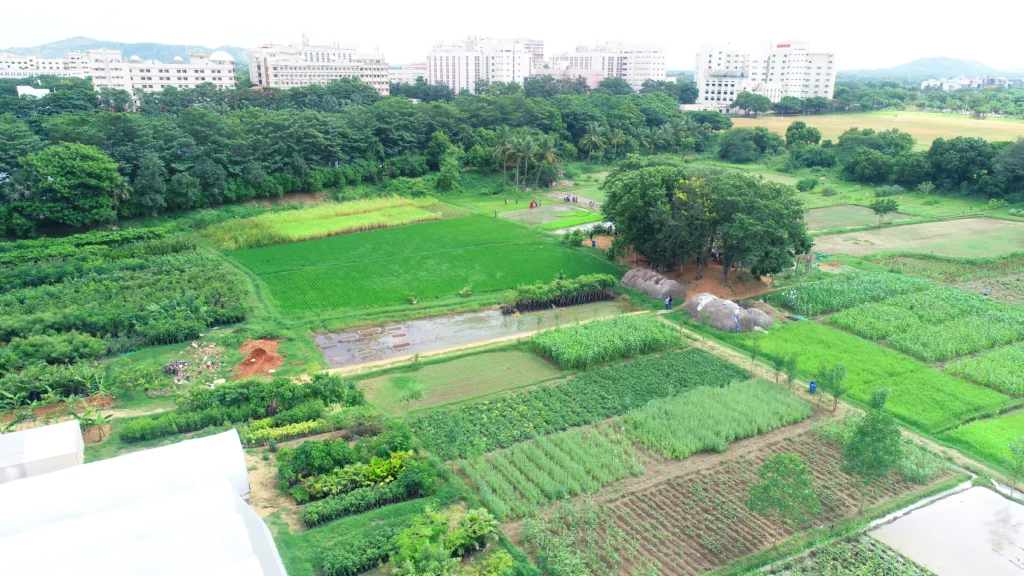VAIAL - UG
VIT School of Agricultural Innovations And Advanced Learning (VAIAL)
VIT School of Agricultural Innovations and Advanced Learning (VAIAL) is engaged in Agricultural education, research and extension. Core activities of the school revolves around teaching in Agriculture, training of students, organizing farmers training programmes, outreach and field programmes for the farmers as well as research in agricultural and allied sectors on a techno-commercial scale. Integrated and self sustainable organic farming is the main focus of the school.
Programmes Offered in Vellore Campus:
- 1. B.Sc.(Hons.) Agriculture – 4 years

- B.Sc.(Hons.) Agriculture - 4 years
- About the Programme
- Infrastructure
- Scope of employment
- Curriculum and Syllabus
The study of agriculture is called agricultural science or agricultural technology. The field combines the natural and social sciences, along with economics, engineering and management (particularly natural resources management and business management) of biological systems to practice, development and understand the fields of agriculture and forestry. Being related to the field of Life & Biological Sciences, agricultural science is multidisciplinary and inter-related to Food Science & Technology. Agricultural Science uses the fundamentals of biology, chemistry, physics, mathematics and statistics to solve the problems of agriculture-food industry.
Laboratories
- Agri Lab I
- Agri Lab II
- Agri Lab III
- Agri Lab IV
Major equipment
- UV Spectrophotometer
- Phase contrast microscope
- Fluorescent microscope
- Portable photosynthesis system
- Chlorophyll fluorescence meter
- SPAD meter
- Rheometer
- Texture analyzer
- Fermenter
- Nitrogen analyzer
- Flame photometer
- High Performance Liquid Chromatography
- Thermal cycler
- 2D gel electrophoresis
- Plant growth chamber
Following are some of the employment opportunities for B.Sc. (Hons.) Agriculture programme:
- Agriculture extension service in State departments of agriculture
- Agri business management sector
- Agricultural farm management and crop production
- Banking sector
- Agro industries
- Seed production
- Fertilizers and pesticides
- Organic manures, biofertilizers and biopesticides
- Horticulture – fruit and vegetable production, floriculture industry
- Food processing
- Medicinal crops and pharmaceuticals
- Agricultural marketing and supply chain management
- Agricultural engineering
- Agroforestry
- Integrated farming system



